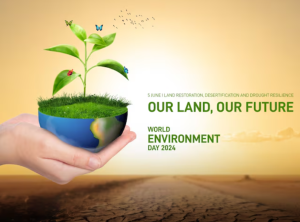The recently concluded 2024 World Economic Forum at Davos highlighted the country’s resilient global economy and its status as a preferred investment destination, besides its commitment to global issues. Here are the five key themes from India at Davos.
Foreign Investment and Technology Advancements
India’s representation at Davos focused on gender equality with the ‘We Lead’ Lounge, emphasising women’s leadership. Beyond symbolic gestures, the event witnessed substantial progress in foreign investment commitments, especially in technology and manufacturing. Indian states like Maharashtra, Tamil Nadu, Telangana, and Karnataka positioned themselves as tech hubs, securing substantial investment commitments from major global players. The manufacturing-linked incentive scheme attracted participation from leading Indian technology companies like Dell, HP, and Lenovo, signalling a significant boost for India’s technology sector.
Clean Energy Transition
India’s role in combating climate change took centre stage at Davos, highlighting the country’s pivotal position in the global green energy sector. Minister Hardeep Singh Puri brought forth India’s cost advantage in producing green energy and electrolysers, projecting the nation as a key player in meeting the rising global demand for sustainable energy solutions. With a growing energy consumption rate, India’s focus on Green Hydrogen, biofuels, and initiatives like the International Solar Alliance positions the nation as a crucial player in the global transition to clean energy.
Responsible Use of AI
Artificial intelligence emerged as a key topic, with Indian leaders calling for responsible behaviour and governance in AI development. The call for a consensus on watermarking AI technologies reflects India’s commitment to balanced and ethical AI deployment. Industry experts, including Ahmed Mazhari of Microsoft, highlighted the immense opportunities for Indian tech companies to become the ‘enablement engine’ for both domestic and international endeavours. As India asserts its stance on responsible AI, businesses can anticipate a landscape prioritising ethical considerations and responsible innovation.
Diplomatic Milestones
In 2023, India took on the leadership role of the G20 with the overarching theme of ‘one planet, one family, one future,’ concurrently granting permanent membership to the African Union. Additionally, as a founding participant in the BRICS bloc of emerging nations, India actively endorsed its expansion to encompass six additional countries: Saudi Arabia, Iran, Ethiopia, Egypt, Argentina, and the United Arab Emirates. This evolution positions the bloc as a formidable entity, representing a substantial 46% of the global population and contributing 25% to worldwide exports, thereby surpassing the collective GDP of the G7. The implications of the expanding club of BRIC nations will be key in reshaping the global geopolitical and economic landscape, thus giving Indian businesses a boost to contribute to the world economy.
With elections in 2024, it is a Big Year for democracy
In 2024, at least 64 countries (including India) will hold national elections, impacting a combined population of over 4 billion worldwide. Discussions at Davos reflected on the current strengths and weaknesses of democracy and how the electoral process has had a boost through digitisation. With a large youth population and a robust economy, India faces the challenge of sustaining momentum amidst global uncertainties.
As the nation navigates challenges and opportunities in foreign investment, diversity, clean energy, and AI, Indian businesses today are well poised to succeed globally. The outcomes of Davos 2024 have further accelerated India’s transformative journey towards becoming a leading global economic player in the years to come.




